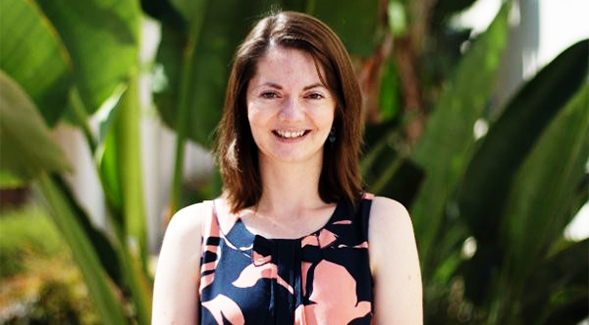Common Threads Emerge From Research Into Immigrant Communities
Vanja Lazarevic, who came to the U.S. as a refugee from Bosnia as a teen, studies dynamics in immigrant families and finds a crucial source of protection from stress.

Early in her career as a researcher, Vanja Lazarevic was surprised to find her work starting to feel so personal. She was in Boston, studying family dynamics in the city’s Somali refugee community — people who had come from a continent and culture seemingly quite different from her own.
Yet as she conducted interviews with Somali teens — about the discrimination they faced, their struggles with acculturation, their responsibilities as household translators — she recognized her own experience as a Bosnian refugee, being reflected back at her.
“We were pretty much having the same experiences,” said Lazarevic, whose family fled war-torn Bosnia and settled in Milwaukee when she was 17. “And there were a number of times where I couldn't even finish the interview. I would have to leave the room and compose myself.”
For Lazarevic, now an assistant professor in child and family development at San Diego State University, those early research experiences blossomed into a professional passion. Conducting research in Latinx and Asian immigrant communities in San Diego, she seeks to understand how stressors associated with the immigrant experience impact relationships between parents and their adolescent and young adult children.
And it’s still the similarities between immigrant groups that stand out most.
“There are a lot of commonalities, especially when it comes to the challenges that young people experience,” she said. “Over and over we see that discrimination is a very prevalent issue, especially lately for Latino immigrants. That brings on a lot of depression and anxiety and a whole lot of other issues.”
Glimmers of hope
Lazarevic said, however, that discrimination only partially accounts for the “alarming rates” of depression and anxiety found among the adolescents and young adults she has studied. She added that young people are often overwhelmed by competing responsibilities, such as going to school, working to earn money and helping parents and elderly family members navigate life in a new country.
But her research has also uncovered glimmers of hope.
“I’ve found that those who report they feel a sense of belonging — to their families, to their ethnic identities, to their ethnic group — seem to be doing better despite these other stressors when compared to people not feeling like they have a sense of belonging,” Lazarevic said.
Her goal is to disseminate this research community-wide, so that individuals who work with these young people in schools and mental health professions better understand the stressors they experience. She also hopes to find ways to capitalize on “protective factors,” such as strong family structures and a sense of belonging within ethnic communities.
“I am really oriented toward social justice and equity and I try to make sure that that is the lens I'm using to look at both research and teaching,” Lazarevic said. “That's really been crucial to me in ensuring I'm doing good research and trying to think about the populations that I'm trying to serve.”
Student contributions
SDSU students have helped move Lazarevic’s research forward. Undergraduates have contributed by proofreading questionnaires, researching local organizations that work in immigrant communities and contributing to manuscripts. Her graduate students have been her publication co-authors and conference co-presenters.
Itzel Ruiz (’18), now a preschool teacher in Encinitas, California, worked with Lazarevic during her senior year.
“I could see the passion of her research radiating through her, and that showed me that research isn't just data tables and paragraphs,” Ruiz said. “Research is having a passionate question and digging deeper to find meaning, then sharing what you have found to the world. This experience made me appreciate research — and all the work everyone puts into that entire process — more.”
For many of the students, Lazarevic says, involvement in the research is personal. Much like it was for her.
“The students who end up being interested in my research are typically ones who come from immigrant communities,” she said. “They're definitely very oriented towards making sure they understand what's going on and ultimately help the communities that they're coming from."



